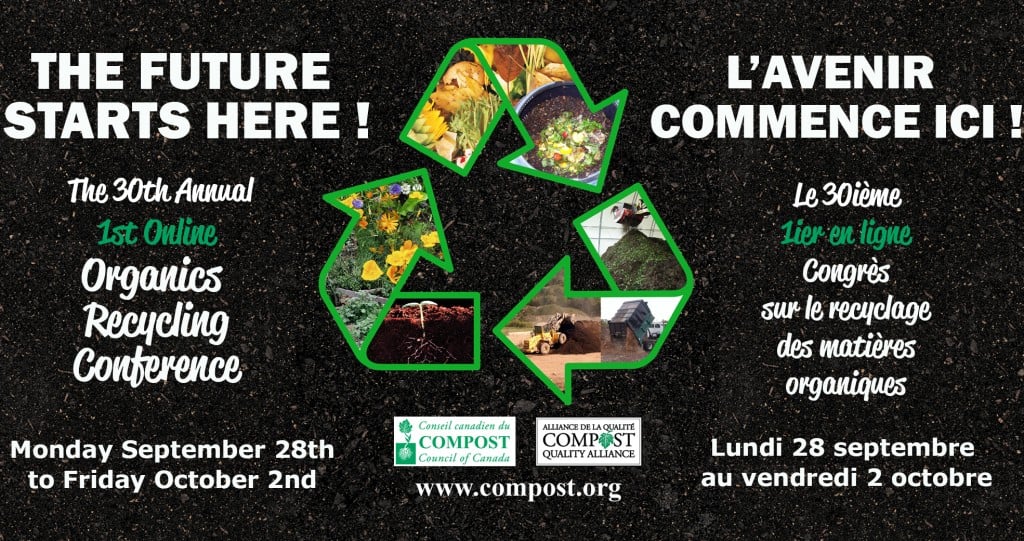
The 30th Annual Organics Recycling Conference of The Compost Council of Canada, originally scheduled to be held in Moncton in late September this year, has taken on the challenges of COVID and, just like the composting process itself, taken something that is unwanted and turned it into something great.
"The Council's conference has embraced the challenges of these times, changing the format now to a virtual one," said Co-Chair Bettina Kay, Compost Supervisor, ECO360. "Given that the world couldn't come to Moncton this year, we have turned things around to showcase the world of organics recycling to our conference delegates, both near and far."
To be held from Monday September 28th - Friday October 2nd, with the involvement of both Eco360 and TransAqua, the Canadian organization decided to embrace the COVID situation, linking up with their Irish counterpart, CRÉ: Composting & Anaerobic Digestion Association of Ireland, and IICA: Inter-American Institute for Cooperation on Agriculture, to develop sessions together which will be accessible not only for their own members but everyone around the world whose interests focus on recycling organics instead of needlessly burying them in landfills.
Speakers from Europe, the UK, Central America, Australia and the United States are scheduled to join fellow proponents across Canada to share the latest developments in organics recycling and progress towards fully capturing the associated benefits of reducing greenhouse gas emissions, strengthening local and global food security, improving water conservation and strengthening the health and productivity of our soils.
The conference's importance has been further heightened with the keynote address from the Laureate of the 2020 World Food Prize, Dr. Rattan Lal, Distinguished Professor of Soil Sciences and Director of the Carbon Management and Sequestration Centre from Ohio State University and IICA's Goodwill Ambassador and Chair in Soil Science. Over his career spanning more than five decades and four continents, Dr. Lal has promoted innovative soil-saving techniques benefiting the livelihoods of more than 500 million smallholder farmers, improving the food and nutritional security of more than two billion people and saving hundreds of millions of hectares of natural tropical ecosystems.
The virtual conference will feature 15 sessions that delve into the many dynamics, economic and environmental opportunities that come about when organic residuals are composted or anaerobically digested and environmentally respectful products for the soil and, at times, for energy use, are created.



